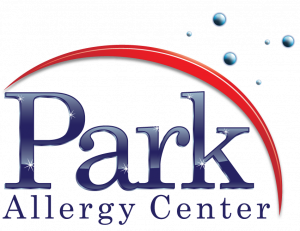Please check back with us for the latest news, announcements, and updates at Park Allergy Center! We regularly update our site with the latest allergy news and tips.
Allergists treat two of the nation’s most common chronic health problems – allergies and asthma. Although symptoms may not always be severe, allergies and asthma are diseases and should be treated that way. Many people with allergies and asthma simply don’t realize how much better they can feel.
Allergists are specially trained to help you take control of your allergies and asthma, so you can live the life you want. They find the source of your symptoms and provide the most effective treatment options. Don’t let allergies or asthma hold you back from the things you love. Find expert care with an allergist.
Here are some of the conditions allergists treat:
Asthma is a disease that affects the airways in your lungs, making them inflamed and swollen. The inflammation makes your airways more likely to be bothered by allergens or things like smoke, stress, exercise or cold air. Airway muscle spasms block the flow of air to your lungs, causing symptoms that may include difficulty breathing, a tight feeling in your chest, coughing and wheezing. Sometimes your only symptom is a chronic cough, especially at night, after you exercise or when you are laughing. Sometimes asthma has only mild symptoms, but it can be life-threatening if you have an attack and stop breathing.
Hay fever is a common condition that causes symptoms such as sneezing, stuffy nose, runny nose, watery eyes and itching of your nose, eyes or the roof of your mouth. Allergic rhinitis can be seasonal or perennial, and each has different symptoms:
- Seasonal allergic rhinitis symptoms occur in spring, summer and/or early fall. They are usually caused by allergies to pollens from trees, grasses or weeds or to airborne mold spores.
- People with perennial allergic rhinitis experience symptoms year-round. It is generally caused by sensitivity to house dust mites, animal dander, cockroaches and/or mold spores. Underlying or hidden food allergies rarely cause perennial nasal symptoms.
Allergic reactions in your eyes, called eye allergies or allergic conjunctivitis, result in itching, redness and burning. They are often caused by the same allergy triggers that cause hay fever and can result in many of the same symptoms such as sneezing, sniffling and a stuffy nose. While many people treat their nasal allergy symptoms, they often ignore eye symptoms which can be treated effectively with medication or immunotherapy.
Contact dermatitis, eczema and hives are skin reactions that can be caused by allergens and other irritants. Sometimes, your reaction can happen quickly. Other reactions may take hours or days, as in poison ivy. Common allergens can be medicines, insect stings, foods, animals and chemicals used at home or work. Your skin allergies may be worse under stress.
An allergic reaction to food can cause mild to serious symptoms. Symptoms can include vomiting, nausea, stomach cramps, indigestion, diarrhea, hives or other skin rashes, wheezing and coughing, headaches, runny or stuffy nose and sneezing. In extreme cases, food allergy can trigger a severe and life-threatening reaction called anaphylaxis. Some mild symptoms may be caused by a food sensitivity rather than an allergic reaction. An allergist can help determine if it is a true allergic reaction. Shellfish, peanuts and tree nuts are the most common food allergies in adults. Milk, eggs, soy, wheat, shellfish, peanuts and tree nuts are the most common food allergies in children.
An allergist can help you determine if you have a severe allergy – one that might result in anaphylaxis, and help you identify triggers. Anaphylaxis is a rare allergic reaction that affects many parts of your body at the same time. If not treated quickly, it can be fatal. The trigger may be an insect sting, a food (such as peanuts), the latex in rubber products or a medication. The most dangerous symptoms of anaphylaxis affect your breathing and/or cardiovascular system (heart and blood pressure). Symptoms can include some or all of the following:
- Hives, itchiness and redness on the skin, lips, eyelids or other areas of the body
- Wheezing or difficulty breathing
- Swelling of your tongue, throat, nose and lips
- Nausea, stomach cramping and vomiting or diarrhea
- Dizziness and fainting or loss of consciousness, which can lead to shock and heart failure
Frequently these symptoms start suddenly without warning and rapidly get worse. At the first sign of anaphylaxis, you should get help immediately, call 911 or go to the closest emergency room. If you have been prescribed epinephrine, you should use your epinephrine auto injector.
Sinus infections, also called sinusitis, are common in people with nasal allergies such as hay fever. The constant stuffy and runny nose can inflame your nasal passages and make them swell. Symptoms include a runny nose with a thick discharge, cough and occasionally pain in your forehead, around and in between your eyes, in your upper jaw, cheeks and teeth. In some cases, sinusitis can be chronic and cause several infections a year. If you have asthma, you are more likely to have chronic sinus infections which can complicate your disease and make your symptoms more severe.
Citation: https://acaai.org/allergies/allergy-treatment/when-see-allergist/what-does-allergist-treat?
FDA OKs 1st generic version of popular Advair asthma inhaler
The first generic version of the popular Advair asthma inhaler has been approved by U.S. regulators.
The Food and Drug Administration on Wednesday approved Mylan’s version in three strengths for ages 4 and up.
The inhalers are used twice daily to keep airways open and prevent flare-ups of wheezing, shortness of breath and other symptoms of asthma or chronic obstructive pulmonary disease. About 42 million Americans have those conditions.
The device contains two medicines, inhaled in a precise mixture. That complexity has stymied a couple of other companies developing generic versions of GlaxoSmithKline’s Advair Diskus inhaler, which costs about $400 a month.
Generics generally are cheaper. Mylan didn’t immediately respond to queries about when its inhaler, called Wixela Inhub, will be available or what the price will be.
Citation: https://www.apnews.com/20414480b66e4a06970a92b48a412e01
aaaai.org/conditions-and-treatments
During the winter, dry indoor air is often the cause of chapped lips, dry skin and irritated sinus passages. The moisture from a humidifier can soothe dry sinus passages. However, if you have indoor allergies, dust and mold from the humidifier may cause more harm than good.
The number one indoor allergen is the dust mite. Dust mites grow best where there is moisture. Moisturizing the air with a humidifier creates the perfect home for dust mites to live and prosper. Keep the humidity level in your house between 40-50%. You can monitor the levels with a hygrometer.
Mold spores can also be an issue for people with mold allergies. It is important to clean and change the filter in the humidifier on a regular basis so mold does not grow in the unit and blow into the home. Read the manufacturer instructions for tips on cleaning your humidifier.
If possible, use distilled or demineralized water in your humidifier. The higher level of minerals in tap water can increase bacteria growth, resulting in a white dust and additional irritation to your sinuses.
If you have indoor allergies, check with your allergist / immunologist to see if using a humidifier can help you and your sinuses survive winter.
Citation: https://www.aaaai.org/conditions-and-treatments/library/allergy-library/humidifiers-and-indoor-allergies

